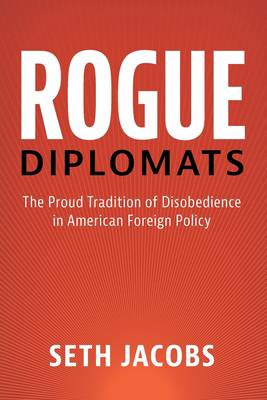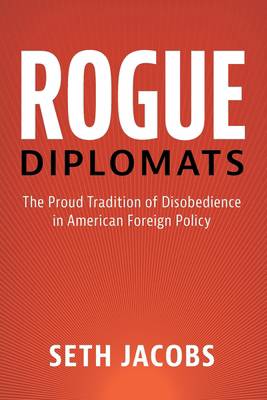
- Afhalen na 1 uur in een winkel met voorraad
- Gratis thuislevering in België vanaf € 30
- Ruim aanbod met 7 miljoen producten
- Afhalen na 1 uur in een winkel met voorraad
- Gratis thuislevering in België vanaf € 30
- Ruim aanbod met 7 miljoen producten
Zoeken
€ 36,45
+ 72 punten
Omschrijving
Many of America's most significant political, economic, territorial, and geostrategic accomplishments from 1776 to the present day came about because a U.S. diplomat disobeyed orders. The magnificent terms granted to the infant republic by Britain at the close of the American Revolution, the bloodless acquisition of France's massive Louisiana territory in 1803, the procurement of an even vaster expanse of land from Mexico forty years later, the preservation of the Anglo-American 'special relationship' during World War I--these and other milestones in the history of U.S. geopolitics derived in large part from the refusal of ambassadors, ministers, and envoys to heed the instructions given to them by their superiors back home. Historians have neglected this pattern of insubordination--until now. Rogue Diplomats makes a seminal contribution to scholarship on U.S. geopolitics and provides a provocative response to the question that has vexed so many diplomatic historians: is there a distinctively "American" foreign policy?
Specificaties
Betrokkenen
- Auteur(s):
- Uitgeverij:
Inhoud
- Aantal bladzijden:
- 407
- Taal:
- Engels
- Reeks:
Eigenschappen
- Productcode (EAN):
- 9781107438743
- Verschijningsdatum:
- 3/11/2022
- Uitvoering:
- Paperback
- Formaat:
- Trade paperback (VS)
- Afmetingen:
- 152 mm x 229 mm
- Gewicht:
- 594 g

Alleen bij Standaard Boekhandel
+ 72 punten op je klantenkaart van Standaard Boekhandel
Beoordelingen
We publiceren alleen reviews die voldoen aan de voorwaarden voor reviews. Bekijk onze voorwaarden voor reviews.











